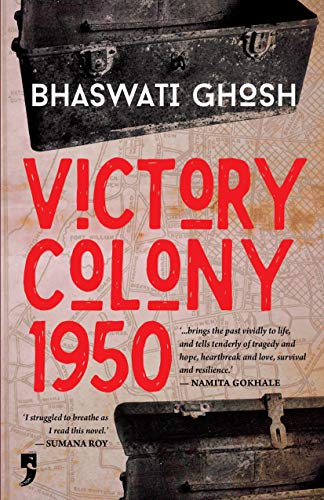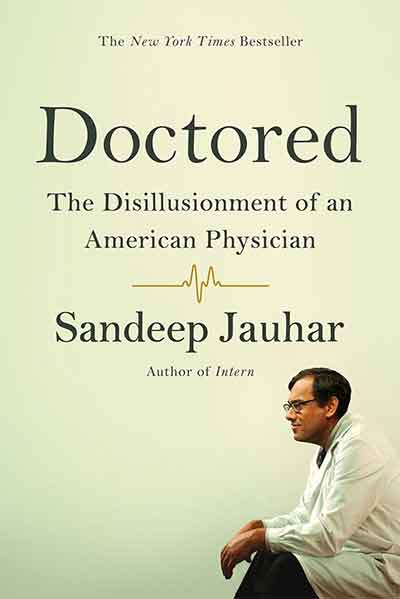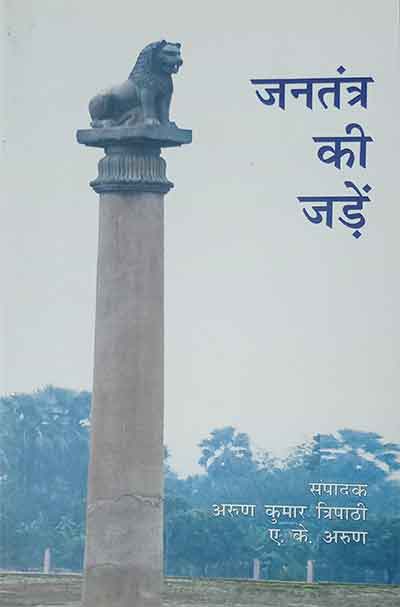 Victory Colony, 1950 by Bhaswati Ghosh is a harrowing tale of partition that brought death and displacement for millions of people. The novel is set in Kolkata. Though the novel is about partition, it’s more about the human lives that bear the brunt of the whimsy of the rulers. The novelist portrayed the wounds that her forefathers or my forefathers being Bengalis went through in the world’s most tragic incident not with any tinge of hatred but with a subtle grace of love and resilience. The novel gives us an eerie sensation too at the realisation of how we are once again at the crossfire of the cruel repetition of history with a majoritarian ruler at the centre and acts like Citizenship Amendment act(CAA)
Victory Colony, 1950 by Bhaswati Ghosh is a harrowing tale of partition that brought death and displacement for millions of people. The novel is set in Kolkata. Though the novel is about partition, it’s more about the human lives that bear the brunt of the whimsy of the rulers. The novelist portrayed the wounds that her forefathers or my forefathers being Bengalis went through in the world’s most tragic incident not with any tinge of hatred but with a subtle grace of love and resilience. The novel gives us an eerie sensation too at the realisation of how we are once again at the crossfire of the cruel repetition of history with a majoritarian ruler at the centre and acts like Citizenship Amendment act(CAA)
In the first scene, we see Amala, the female protagonist of the novel, has just arrived with the tagline of “refugee” and finds herself alone in a crowded railway station after losing her brother Kartik. Doesn’t the scene push us to remember the harrowing visuals of thousands of Rohingya refugees crossing the border and trying to enter neighbouring countries, mostly Bangladesh? The description of the refugee camps provokes us to go through the vignettes of the Rohingya camps in Bangladesh. The stench, nagging armies of flies, disease and malnutrition of the camps come alive in our senses.
As a Bengali living in a land very close to Bangladesh, the horrors of partition and riots always occupied my afternoon tales or the tales of rainy days. The smell of my grandmother, her constant wavering of palm leaf hand-fan and her stories of riots that followed the partition form a considerable amount of my childhood memories. Some people left Bengal, some were forced to come to West Bengal leaving their homes behind. The pains, the wound and the basic human tendency to love even in distress make the novel an unputdownable read.
The relationship between Amala and Manas is the breathing line of humanity, love and trust that champions human beings at the end of every darkness. Manas, is the light that binds, guides, and steers human existence to the safest place called home. He gives Amala a home. Amala’s desperate question, What home, haan?What home? finds an answer.
While for others, Home is still an elusive idea. The nameless child who dies more from malnutrition than from disease in the novel is as homeless as Alan Kurdi who drowns while crossing the Mediterranean sea in search of that elusive home. Though the novel is about the period of partition, the characters, their helplessness and longing for home very much strum the chords of present times. When Mrinmoyee refuses to accept the existence of Amala as an ugly “Bangaal, chhotolok girl”, we find the resonance of terming Muslims as Katwa in today’s India.
The novelist has never robbed the refugees of humanity, tenacity, and empathy. We see how Malati and Nimai accepted Amala as their daughter and for Amala, Hablu is more like a son. The human resilience to survive every odd finds a living touch when the dwellers of the refugee camps refuse to die before death and fight for a life of dignity. The novelist never shows the refugees as hopeless, rather she shows the graceful struggles of every victim who has seen the killings of the near and dear ones but never hardened their hearts. We see Urmila recovers from the trauma and recognises the love she gets from Malati or Amala.
The novelist breaks the hierarchy through the representation of characters like Manas. Upper class, upper caste characters Mrinmoyee hates Baangal Amla but Haraprasad accepts her. Amala may be a refugee but not devoid of dignity. She ensures Manas loves him before agreeing to marry him.
The novel should be read for many reasons. But for me, the novel should be read to not slip again into the same whirlpool of history. Not let the secessionist elements rip apart the social united fabric of India.
The novel ends with the hope, the hope of walking together till the end as we see Ghoti, Manas walks with a Baangal Kartik. The novel is a delight to our taste and smell buds too. It takes me back to the memory lane when as a child during the 90s I used to paddle through the Kachcha road on my way to school through the Dhakaiya(one who came from Bangladesh) colony and the sweet smell of Nolen Gur lured my desire to have a dollop of it.
The novel’s journey from the crowded, grim, stinky sealdah station to the victory colony is the journey of humanity from darkness to light. And it also reminds the readers not to go back to the dreaded days that Amala faces. The novel is a tale that should be read and told, retold to the generations for finding hope, love and respite in harmonious existence.
Moumita Alam is a poet from West Bengal. Her poetry collection The Musings of the Dark is available on Amazon















































